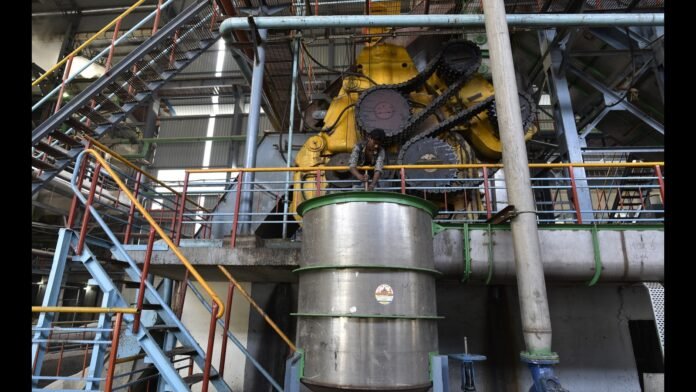With the Maharashtra State Electricity Distribution Company Limited (MSEDCL) having reduced the rates offered to sugar mills for power generated through their co-generation plants to ₹4.75 per unit, many mills in the state are turning to other revenue generation options such as ethanol production.
Sugar commissioner Shekhar Gaikwad said that many sugar mills are now producing power just enough to meet their own demands. “The sugar mills, sugar commissioner and MSEDCL held a meeting when the Maha Vikas Aghadi (MVA) government was in power and recently, another meeting was held with deputy chief minister Devendra Fadnavis. The MSEDCL is of the view that if it is getting solar energy at the rate of ₹2 per unit, there is no need to purchase power at higher prices from the sugar mills,” Gaikwad said.
Earlier, the MSEDCL was purchasing power from these sugar mills at rates of up to Rs6.60 per unit although the mills were getting higher rates in the open market during peak hours even then. It was during the power crisis in Maharashtra from 2005 to 2007 that most of these mills set up co-generation plants with an investment of nearly ₹2,500 crore to supplement their revenue. Income from the by-products helped boost the mills’ profitability as the price of sugarcane and sugar is controlled by the government. However, as power generation rose, the MSEDCL reduced the rates offered to the sugar mills to ₹4.75 per unit, prompting them to shift to other revenue generation options.
Among the sugar mills that have already turned to other revenue generation options are the Bhimashankar Cooperative Sugar Factory in Ambegaon, Pune district.
Balasaheb Bende, chairman, Bhimashankar Cooperative Sugar Factory, said, “Earlier, we were getting ₹6.20 per unit of power sold to the MSEDCL but the public utility has reduced the rate to such an extent that even the rate at which bagasse (a by-product of sugarcane) is sold is now higher than that of power. Hence, the mills are turning to other options.”
Bagasse is a residue of crushed sugarcane used to create steam in the mills, and can also be used to turn turbo generator blades to produce electricity. However, with the Centre pushing ethanol production, mills in Maharashtra are now using more sugarcane for distilleries, officials from the sugar commissionerate said.
They said that by the end of 2022, 76 out of the total 200 sugar mills in Maharashtra had ethanol distilleries and that many more are looking to start their own on-campus distilleries.
As per the data shared by the sugar commissionerate, a total 122 sugar mills in Maharashtra were involved in co-generation with 62 out of the 122 being cooperative factories and the remaining being private factories. The total power production capacity of these 122 sugar mills stood at 2,254.75 MW. However, that number has come down, Gaikwad said. He added that the total energy generation (of the 122 sugar mills) during 2021-22 stood at 836.75 crore units. Out of this, 338.76 crore units of power were used by these sugar mills for their own purposes and 472.60 crore units of power were sold to the MSEDCL.
“We, as a sugar commissionerate, are of the view that by spending more capital, sugar mills have adopted modern technology to produce additional power. During the peak season, MSEDCL is purchasing the power generated from coal at Rs16 per unit. If MSEDCL pays good rates to the sugar mills, its dependence on coal energy will come down and the co-generation will help the farming community,” Gaikwad said.
Last year, the sugar mills had even proposed that if the MSEDCL does not want to purchase power at higher prices, it should allow them to sell power to areas around their factories. However, the MSEDCL did not give its consent saying that additional fees would have to be charged as the sugar mills would be using the public utility’s grid and energy transport infrastructure.
Meanwhile, sources said that Fadnavis had proposed to the sugar mills that if they are able to supply power to the MSEDCL during the peak season (mainly April and May), they will be offered higher rates. However, the proposal did not work well as the sugar factory owners said that the sugarcane crushing season ends in March, reducing the co-generation as well.
An MSEDCL officer on condition of anonymity said, “The sugar mills received funding from the government for establishing the co-generation plants. We have long contracts of 12 to 15 years with them for energy purchase. They have recovered the instalment costs of their plants. Now, they only need operational costs for power generation. They can afford to sell energy at lower rates. However, it’s a policy decision and the government alone can decide.”





